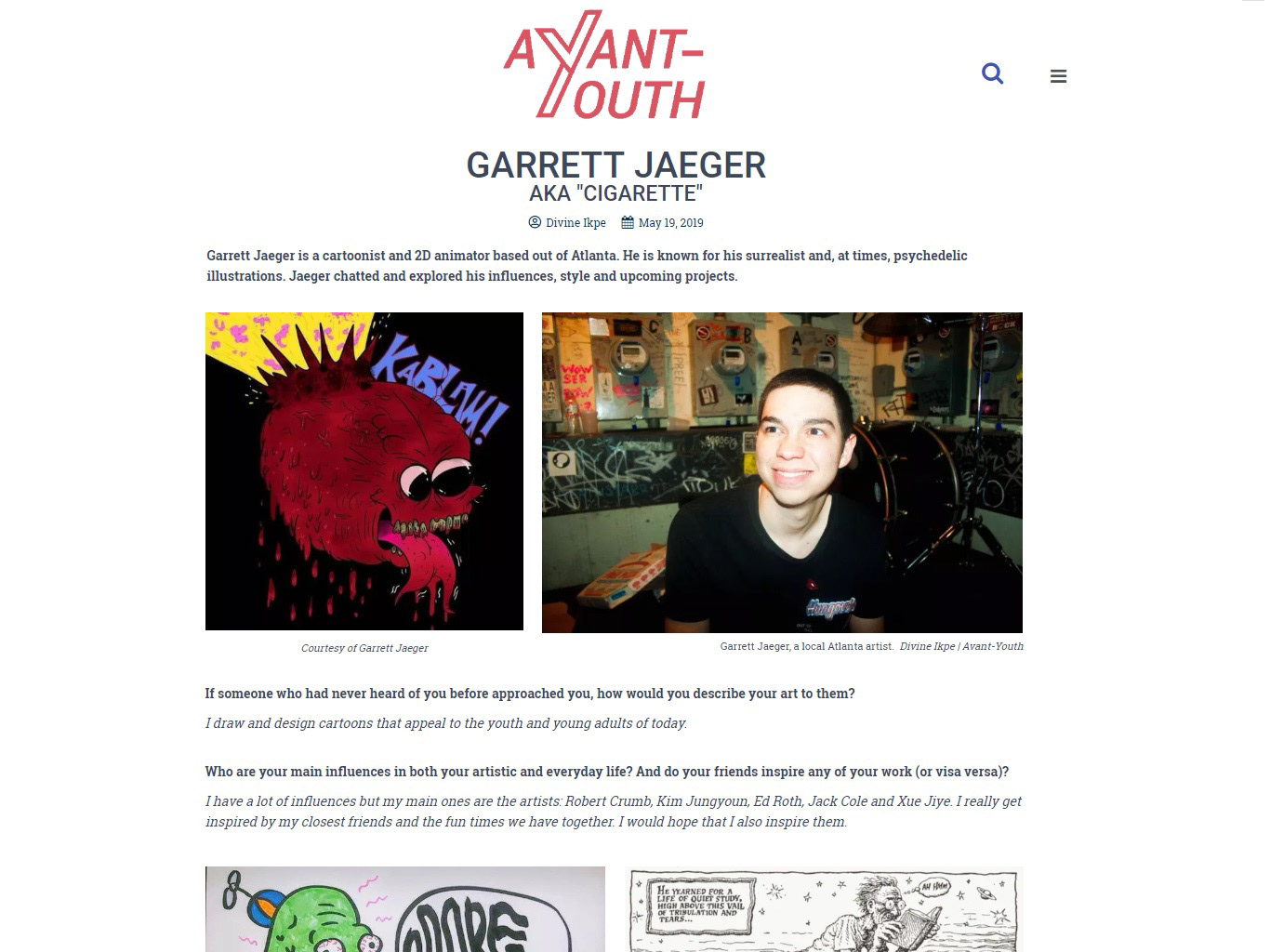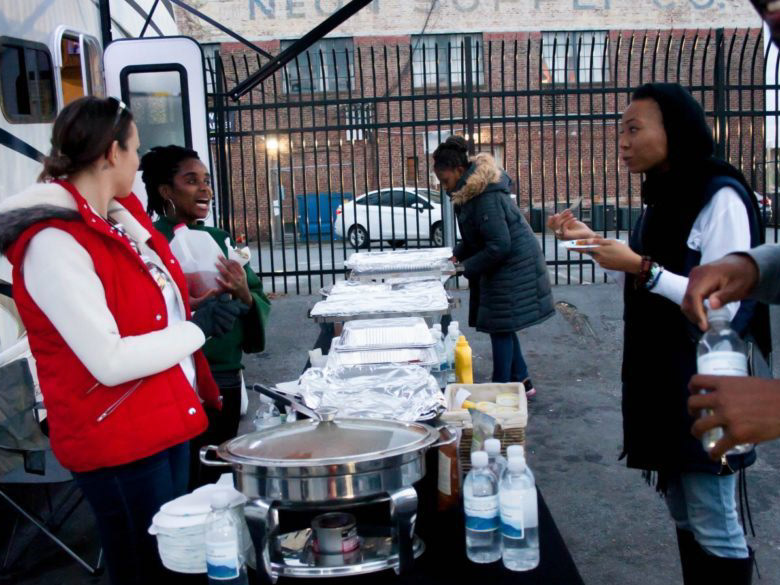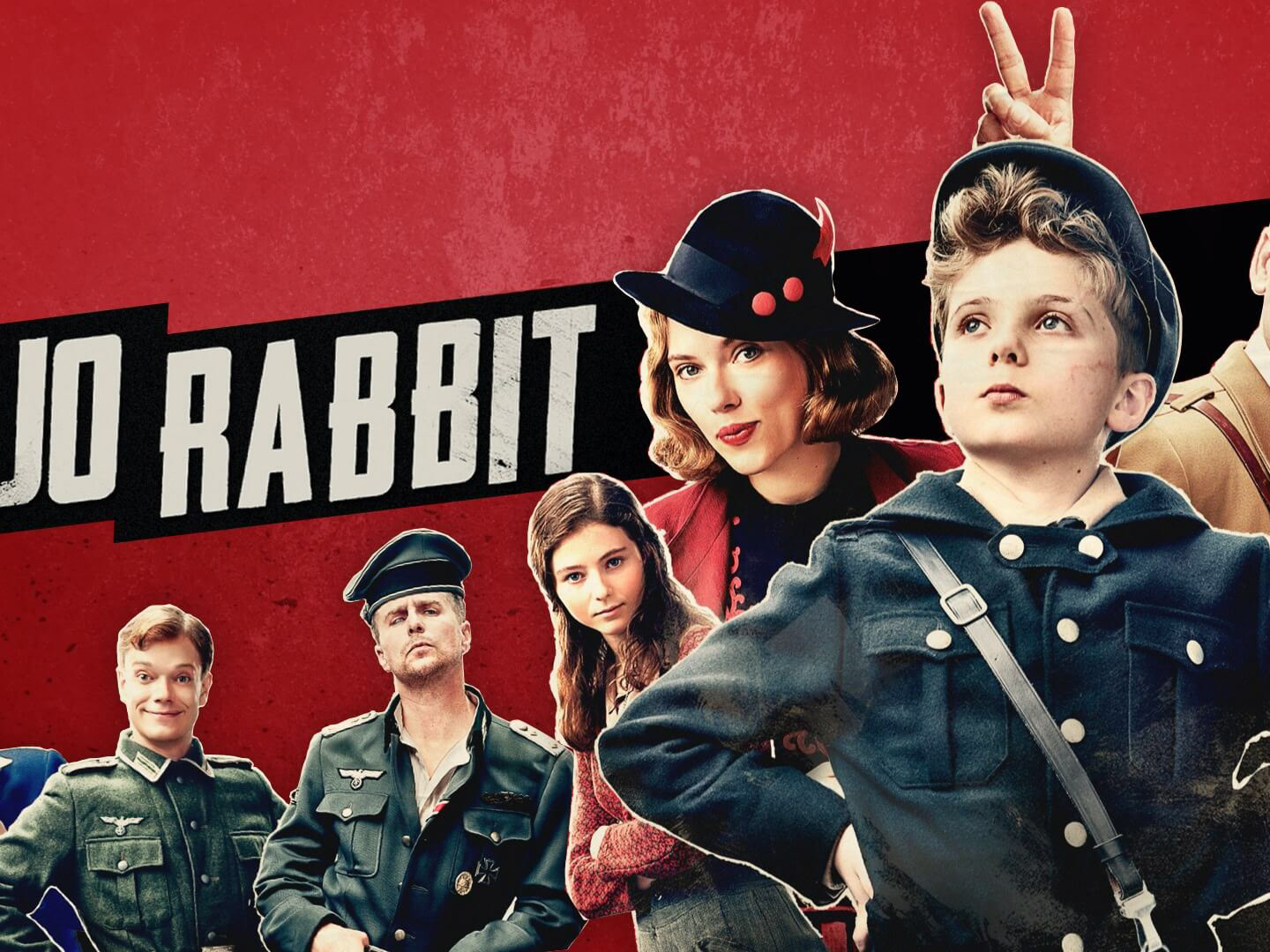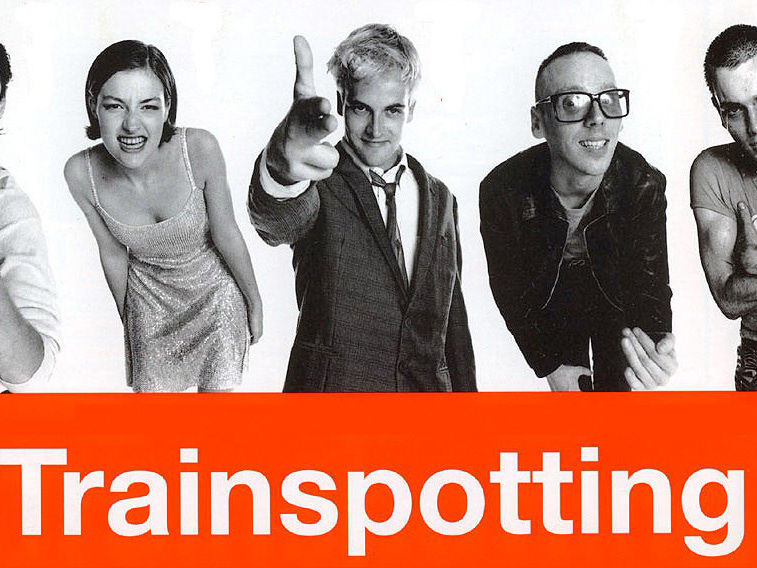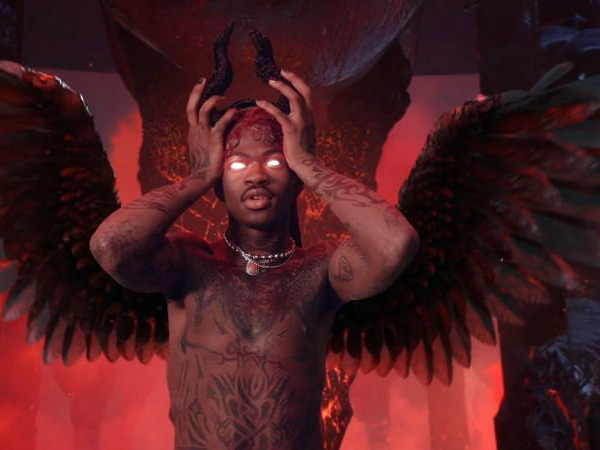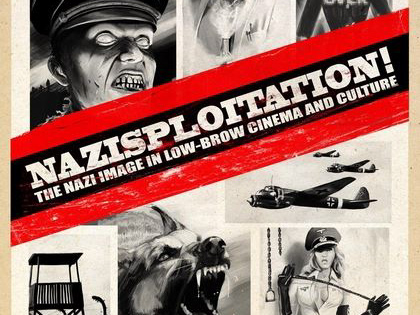
My Chemical Romance "Danger Days" Album Cover
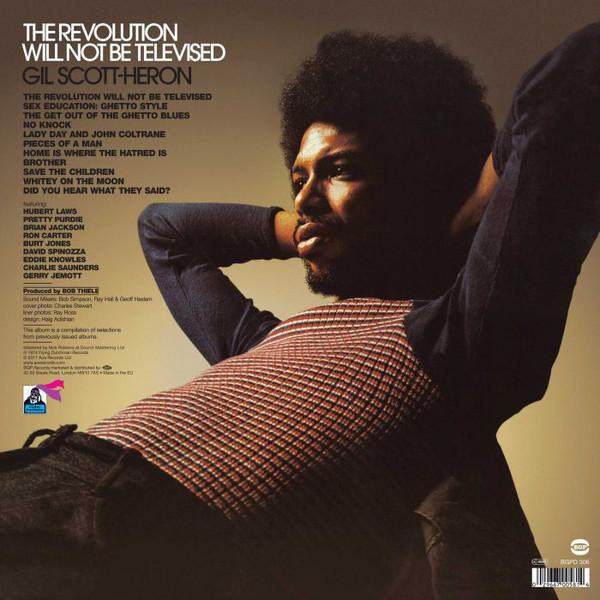
Gil Scott-Heron "The Revolution Will Not Be Televised" Album Cover
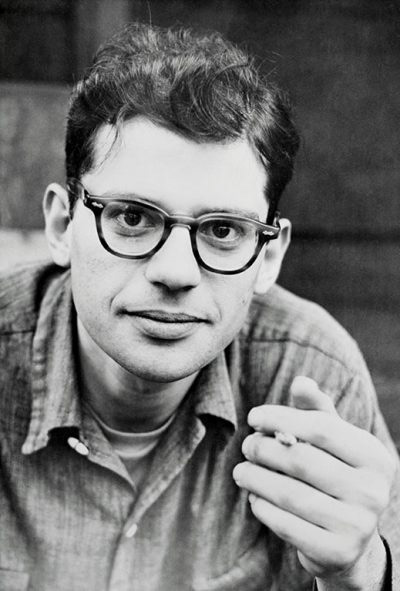
Photo of Allen Ginsberg, from Google
Within this essay I will compare and contrast the contemporary piece, a song by My Chemical Romance titled “Na Na Na,” to the modernist pieces “The Revolution Will Not Be Televised” by Gil Scott Heron and “America” by Allen Ginsberg. All three serve as an analysis on American society during the time period they were created. One unique quality of “Na Na Na” is that unlike the other two it has a punk instrumental in the background whereas the other pieces either have no backing or have a jazz-like instrumental. Regarding “The Revolution,” a unique quality would be the various era-specific pop culture references and references to historical figures as well. Lastly, what’s unique about “America” is Ginsberg's abundant use of metaphor throughout the piece, such as comparing America to a woman for example.
My Chemical Romance’s song “Na Na Na” is an exemplary piece regarding contemporary culture and qualities. The song starts with a triumphant guitar riff and the lead vocalist, Gerard Way, chanting “The future is bulletproof, the aftermath is secondary, It's time to do it now and do it loud; Killjoys, Make some noise.” This could be viewed as a call to action of sorts which is related to the contemporary traits of innovation and sense of freedom; right off the bat in the beginning of the song he is encouraging the listener to take action and actually exert effort in order to improve society. Then, the chorus embodies the period trait of minimalism for the chorus is just “na na na” repeated in many variations with a similar guitar to what the song started with along with a moderately simplistic repeated drum beat.
Next, the first first is a prime example of contemporary chaos and mania more so because of the lyrics as opposed to the instrumental; the lyrics become more complex by satirizing and analyzing society while the instrumentation remains minimal. Gerard Way supplies the listener first with American society’s vices by discussing both drug culture and pleasure/lust obsessed culture and how these can bring upon your demise; he takes on the voice of America in a sense. The lyrics in this verse are:
“Drugs, gimme drugs, gimme drugs, I don't need it
But I'll sell what you got, take the cash and I'll keep it
Eight legs to the wall, hit the gas, kill them all
And we crawl, and we crawl, and we crawl you be my detonator
Love, gimme love, gimme love, I don't need it
But I'll take what I want from your heart and I'll keep it
In a bag, in a box, put an X on the floor
Gimme more, gimme more, gimme more…”
Then the chorus plays once again with a few variations, but still primarily minimalistic.
In the Second verse, Way once again takes the voice of America; this time analyzing mental illness and how mentally ill people are treated in society. This could be viewed as the contemporary trait of the exploration of the subconscious along with contemporary chaos and mania once again. The chorus then comes once again. In the last verse, the instrumentation and vocal flow all change from earlier in the song. This portion exemplifies mania regarding the lyrics and contemporary chaos regarding the instrumental. The percussion becomes significantly more abrasive and complex as does the guitar and the lyrics explore topics such as America’s poverty issue in large cities and how although people may say how they want to help better society, they don’t make an effort to actually do it. An expert from this part of the song that serves as a good example of this is:
“And right here, right now//All the way in Battery City
The little children raise their open, filthy palms//Like tiny daggers up to heaven
And all the Juvie halls and the Ritalin rats//Ask angels made from neon
And fucking garbage scream out what will save us//And the sky opened up
Everybody wants to change the world//Everybody wants to change the world
But no one, no one//Wants to die
Wanna try, wanna try...'ll be your detonator”
After this, there is a chaotic guitar solo filled with vibrato and swelling high notes further showing the mania trait of contemporary pieces. And it finishes with the minimal chorus just as it started along with two lines stating, “Cut my hair, gag and bore me; pull this pin, let this world explode.” These last lines could be viewed either as America bringing upon its own demise or as Way admitting defeat, realizing that despite everyone being aware of the issues within society, no one will actually try to fix it.
The Revolution Will Not Be Televised is a perfect piece to compare to “Na Na Na” for they have similar themes regarding that thought that there should be a revolution in order to improve society yet you have to psychically leave your house/comfort zone to take part in it. This Poem/Song explores the overwhelming consumerism and lack of egalitarianism in America at that time. Stating that “the revolution” isn’t happening on your television and won’t be hosted by your favorite Tv personalities or corporations, rather it is happening right outside your window. And in order to be a part of the revolution you have to get outside and actually make an effort to do something instead of sitting idly by. It starts with Gil Scott Heron stating that
“you will not be able to stay home...plug in, turn on and drop out…[or] lose yourself on skag and skip…[and] skip out for beer during commercials” because “the revolution will not be televised”;
this embodies my earlier statement of how the two pieces are similar along with shows the modernist trait of disenchantment be de-romanticizing American television and LSD culture. Then he goes through and references various important companies and historical figures at the time who too will not help you join the revolution, such as Xerox and Nixon for example.
Then Heron starts to explore the period trait of pluralism by exposing the lack of it stating,
“There will be no pictures of pigs shooting down brothers in the instant replay[;] there will be no pictures of young being run out of Harlem on a rail with a brand new process...and Women will not care if Dick finally gets down with Jane on Search for Tomorrow because Black people will be in the street looking for a brighter day.”
This line essentially discusses how in the media, you won’t see many of the injustices done against African Americans on the television for they want to keep the “average” white American distracted and entertained.
Lastly, Heron states how “the revolution” will not be brought to you by various celebrities and historical figures once again, along with referencing multiple immensely popular companies and likewise corporations from that time period stating that they too are not a part of the television.
In conclusion, what makes this piece a modernist one is the discussion on pluralism, disenchantment with the television obsessed society, and minimalism, for he used the resources available to him and stuck to a relatively consistent theme.
Regarding the lyrical aspect of the song, introspectivity, the societal analysis and political discord of both “Na Na Na” and “The Revolution Will Not Be Televised” can be traced back to the works of the 50’s beat poets. Mental health is mentioned within Ginsberg’s work as well which directly relates to the second verse in “Na Na Na.” The topics discussed by the Beats were daring for their time; they challenged the cookie-cutter, mass-produced, suburban life that ran rampant in the 50’s. Two of Ginsberg’s most popular/well-known pieces are “Howl” and “America”, but the most fitting one for this comparison would be “America” because it, like the previous two pieces, analyzes America and society as a whole and points out where America could improve. It starts with Ginsberg stating, “America I’ve given you all and now I’m nothing.” This is a prime example right from the start of the modernist trait of disenchantment for he is tired of the direction society is moving and with how America has treated him thus far. Then he tells America to “go fuck [it]self with [its] atom bomb,’ most likely referring all the tension there was at that time period regarding nuclear war. The cold war was still prevalent in 1956 so this would have certainly been a topic of discussion in art at that time; many artists like Ginsberg clearly did not support it so they used their creative outlets to show their disapproval.
He then goes on to compare America to a woman, this shows the modernist trait of lyricism and obscurity; you know he’s talking about America but some lines in this section are open to interpretation. Then a few lines down, Ginsberg analyzes capitalism along with America’s privilege and self-proclaimed righteousness by stating, “I’m sick of your insane demands.//When can I go into the supermarket and buy what I need with my good looks?//America after all it is you and I who are perfect not the next world.” This once again shows the modernist trait of disenchantment but it also shows the lack of egalitarianism as well; by Americans and the American government thinking they are always in the right and that it is indeed the other countries which need to improve is a problematic viewpoint, so being aware of this, Ginsberg points it out. He explores the same themes a few lines down stating, “I haven’t read the newspapers for months, everyday somebody goes on trial for murder...America I used to be a communist when I was a kid I’m not sorry.”
After his societal analysis, Ginsberg showcases the modernist trait of introspection and exploration of the conscience/subconscious:
“I smoke marijuana every chance I get.
I sit in my house for days on end and stare at the roses in the closet.
When I go to Chinatown I get drunk and never get laid.
My mind is made up there’s going to be trouble.
You should have seen me reading Marx.
My psychoanalyst thinks I’m perfectly right.
I won’t say the Lord’s Prayer.
I have mystical visions and cosmic vibrations.”
In these lines, he has stepped back from addressing America directly and is rather sharing his personal experience in America with the audience; you can see that he is so distraught with America’s treatment that he turned to drugs in order to cope with it and rejects organized religion. Although he sees a psychologist as well, because of his drug use his mind is too altered to be able to properly cope with his perceived problems with America. Then he goes back to analyzing society by asking both the audience and himself, “are you going to let your emotional life be run by Time Magazine?” This line addresses the rampant consumerism of the 50’s that was mentioned earlier. Next, he compares himself to America realizing that no matter how much he analyzes and satirizes America he is still apart of it and it is a part of him: “It’s always telling me about responsibility. Businessmen are serious. Movie producers are serious. Everybody’s serious but me.//It occurs to me that I am America.///I am talking to myself again.” This line combines the modernist qualities of disenchantment and focus on the conscience/subconscious. After this point, for the rest of the poem, Ginsberg points out hypocritical aspects of American society and of himself as well. At one point, towards the end of the poem Ginsberg states:
“America you don’t really want to go to war.
America it’s them bad Russians.
Them Russians them Russians and them Chinamen. And them Russians.
The Russia wants to eat us alive. The Russia’s power mad. She wants to take our cars
from out our garages.”
This section shows the modernist trait of impersonality because Ginsberg was satirizing how Americans reduce whole nations to having one goal, the goal to take something away from them whether it be their lives or their jobs. These are countries full of people with various mindsets, goals, dreams, ect. Just like america but they didn’t see Russians and Chinese people as people but rather just saw them as an obstacle or competition. Lastly, he ends the poem by satirizing America once again while also analyzing himself:
“That no good. Ugh.
Him make Indians learn read.
Him need big black niggers. Hah.
Her make us all work sixteen hours a day. Help.
America this is quite serious.
America this is the impression I get from looking in the television set.
America is this correct?...It’s true I don’t want to join the Army or turn lathes in precision parts factories, I’m nearsighted and psychopathic anyway.
America I’m putting my queer shoulder to the wheel.”
In America in 1956, they still weren’t accepting of members of the LGBTQ+ community so he very briefly hints at that at the very end of the poem along with pointing out the television obsessed culture that Gil Scott Heron also discussed. In this last section, he also hinted at how America treats minorities and other marginalized groups; how demeaning it is towards African Americans and how it imposed its European culture against the Native Americans, once again showing the lack of egalitarianism, within America.

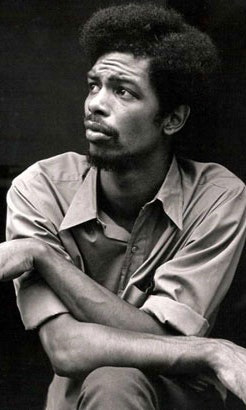

In conclusion, all three pieces analyzed and satirized American culture. “Na Na Na” discussed drug culture, lust obsessed culture, poverty and the fact that people say they want to make a difference in the world, yet do nothing to actually make that a reality. Likewise, “The Revolution” also served as a call to action and pointed out the lack of egalitarianism in American society along with the television obsessed culture. “America” discussed all of the above themes and more including introspection. So as you can see, there are an abundance of similarities among the three pieces I chose for this essay and the differences are minute. There are differences in medium, and a few differences regarding the topics but that’s about it. They’re all great pieces that force the audience to look inside themselves and the society around them as well.
Works Cited
My Chemical Romance. “Na Na Na”. Danger Days: The True Lives of the Fabulous Killjoys, Reprise Records, November 22, 2010. Digital Studio Album.
Gil Scott Heron. “The Revolution Will Not Be Televised.” Small Talk at 125th and Lenox, Flying Dutchman, 1970
Ginsberg, Allen. “America.” Howl and Other Poems (New Edition). Martino Fine Books, 2015.
